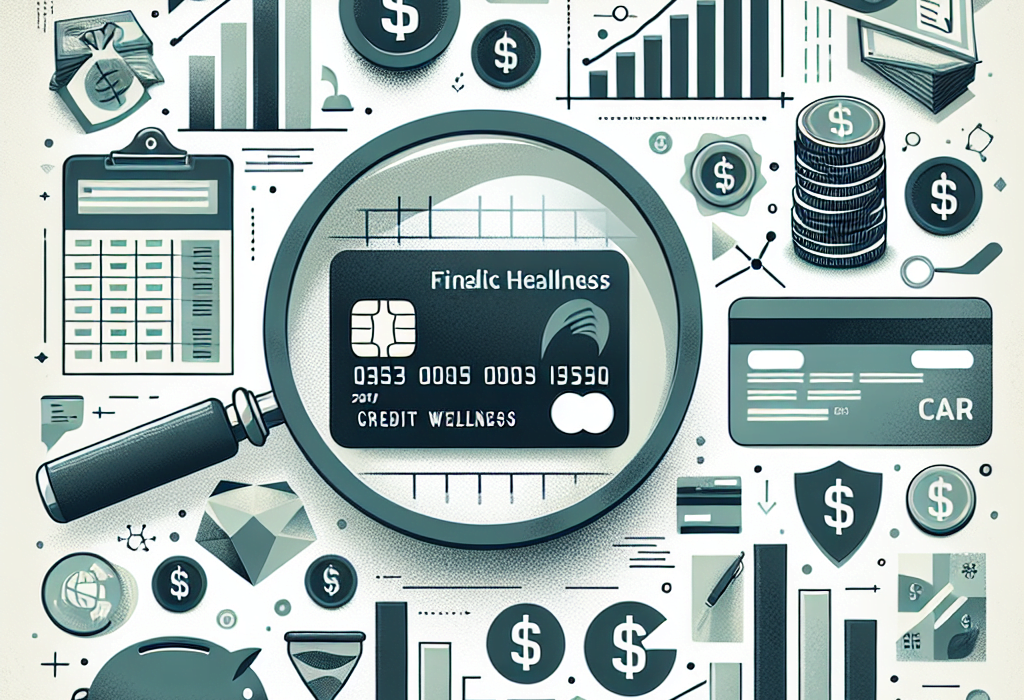Your credit health plays a pivotal role in your overall financial wellness. In today’s society, an excellent credit score can offer you a multitude of financial conveniences, including lower mortgage rates, advantageous credit card rewards, and the peace of mind that comes with financial stability. Conversely, poor credit health might lead you to face higher interest rates and stricter terms for loans. As such, it is critically important to adopt effective strategies that promote credit health improvement. So, if you’re interested in enhancing your financial wellness, here are a few strategies discussed in detail.
Addressing Payment History
Payment history carries a significant impact on your credit score. By consistently making on-time payments, you demonstrate financial responsibility to lenders, which bolsters your credit health. Conversely, late payments negatively impact your score and may deter potential lenders. Therefore, ensuring that all your payments are made on time can be one of the simplest ways to improve your overall credit health.
Manage Your Credit Usage
Credit utilization rate, the ratio of your credit card balances to their available credit limits, strongly influences your credit score. High credit utilization can suggest financial dependency on credit and thus riskiness to lenders. Ideally, your credit utilization rate should remain below 30%. Regularly monitoring your credit usage and paying down your balances can help maintain a healthy credit utilization rate.
Maintaining Credit Diversity
Credit diversity refers to the mix of credit accounts you hold, including credit cards, auto loans, mortgages, and student loans. Various types of credit show lenders that you can handle different forms of debt responsibly. However, this doesn’t mean you should open numerous accounts simultaneously; instead, slowly build credit diversity over time.
Limiting Credit Inquiries
Every time you apply for new credit, a “hard inquiry” is added to your credit report. These inquiries can lower your credit score slightly and remain on your credit report for up to two years. Therefore, too many credit inquiries in a short timeframe can create the impression of financial instability to lenders. Limit your credit applications to when you truly need them, and conduct rate shopping within a short period of time.
Checking Credit Reports Regularly
Regularly checking your credit report can help you understand your credit health and pinpoint any inaccuracies. If you encounter any errors, dispute them promptly with the credit bureau. Correcting these errors can provide an effective, immediate improvement to your credit health.
Conclusion
Improving credit health is a process that requires dedication and perseverance. By vigilantly managing your payment history and credit usage, maintaining a diverse blend of credit, limiting credit inquiries, and regularly reviewing your credit reports, you can progressively enhance your credit health. Remember, improving credit health may be a gradual process, but the resulting financial wellness is truly rewarding.
FAQs
1. How long does it take to improve credit health?
Improving credit health is often a gradual process. Small improvements can be seen in a few months, but significant changes could take years, depending on the current state of your credit health.
2. How does credit diversity affect credit health?
Credit diversity can positively impact your credit health because it shows lenders that you’re capable of managing various types of credit responsibly. However, this doesn’t mean you should open numerous credit accounts simultaneously.
3. How can I check my credit report?
You can request a free credit report from any of the three major credit bureaus (Equifax, Experian, and TransUnion) once a year through www.annualcreditreport.com.
4. What is credit utilization?
Credit utilization refers to the percentage of your available credit that you’re using at any given time. It has a major impact on your credit score. Keeping your rate below 30% is often suggested.
5. Do credit inquiries hurt my credit score?
While “hard inquiries” can slightly affect your credit score and remain on your credit report for two years, the impact is usually minor unless you’re applying for numerous accounts in a short time.













